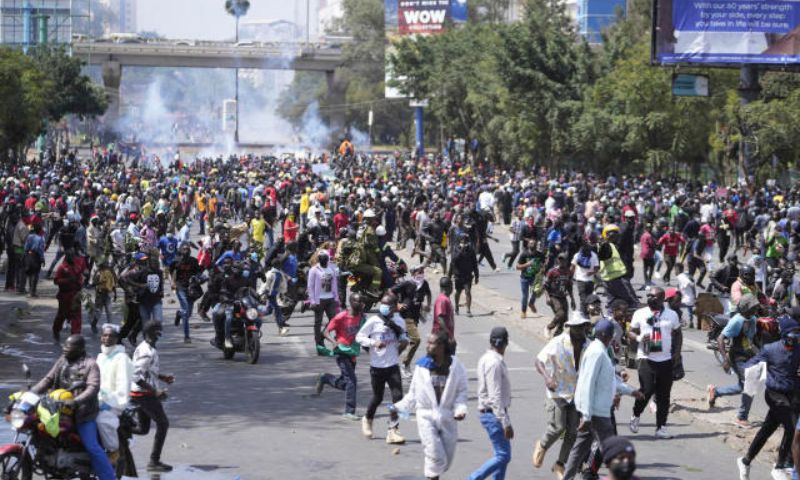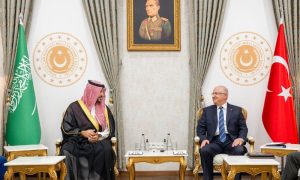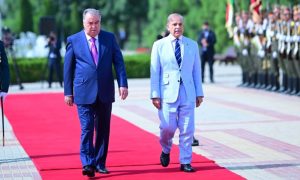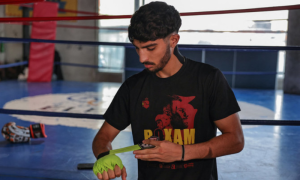NAIROBI: Kenyan police fired rubber bullets and tear gas at demonstrators in Nairobi on Thursday, as violent protests continued despite President William Ruto’s reversal on contentious tax hikes that had ignited deadly clashes.
The protests, mainly driven by young Kenyans, appeared to catch authorities off-guard, prompting a changing response from Ruto’s administration, which hesitated between a hardline stance and calls for dialogue.
Thousands of protesters gathered in Nairobi’s central business district, where soldiers and police in anti-riot gear blocked roads leading to key government offices, including President Ruto’s office at State House and parliament. Police officers were seen firing rubber bullets and tear gas at small groups of demonstrators, arresting at least seven persons amidst scuffles, with some protesters throwing stones at the police, AFP reported.
“The youth will not rest,” Lucky, a 27-year-old university graduate, told AFP. “It’s our future we are fighting for,” he added, expressing distrust towards President Ruto, who had previously referred to the demonstrators as “criminals” before making a dramatic U-turn.
Many shops in the area remained closed as traders braced for potential unrest. Protesters also took to the streets in the port city of Mombasa and the opposition stronghold of Kisumu, where some blocked roads and set fires.
The demonstrations were initially sparked by proposed tax hikes, which President Ruto withdrew on Wednesday after violent clashes erupted. “The people have spoken,” Ruto declared, adding that he would seek “engagement with the young people of our nation.” However, protesters continued to rally on Thursday in memory of those killed in the earlier demonstrations, dismissing Ruto’s reversal as insufficient and overdue.
Ivy, a 26-year-old job seeker, expressed mixed feelings about Ruto’s decision. “He could have done this earlier without people having to die,” she told AFP.
A state-backed rights group reported that 22 people were killed nationwide during Tuesday’s protests, with 19 deaths occurring in Nairobi alone. Roseline Odede, chairwoman of the Kenya National Commission on Human Rights, described the incident as “the largest number of deaths (in) a single day protest” and announced an investigation into the violence. Additionally, 300 people were reported injured across the country.
Many businesses in Nairobi’s central business district remained shuttered, with workers fearful of further violence. “We cannot take risk. We don’t know what happens next,” said Joe, a perfume store employee.
The Kenyan government’s withdrawal of the tax hike bill has raised concerns about a significant budget shortfall. Last week, the treasury warned of a 200 billion shillings ($1.6 billion) deficit. President Ruto acknowledged that without the tax increases, funding for crucial development programs would be jeopardized, further complicating the country’s financial stability.
Kenya’s debt stands at approximately 10 trillion shillings ($78 billion), roughly 70 percent of its GDP. Analysts warn that Ruto’s administration faces a difficult balancing act in the coming weeks. “The government will now have to find a way to pacify two opposing forces: a populace willing to resort to violence to protect livelihoods, and a macroeconomic trajectory that, bar considerable multilateral support, is heading towards a cliff,” Oxford Economics stated in a note.























